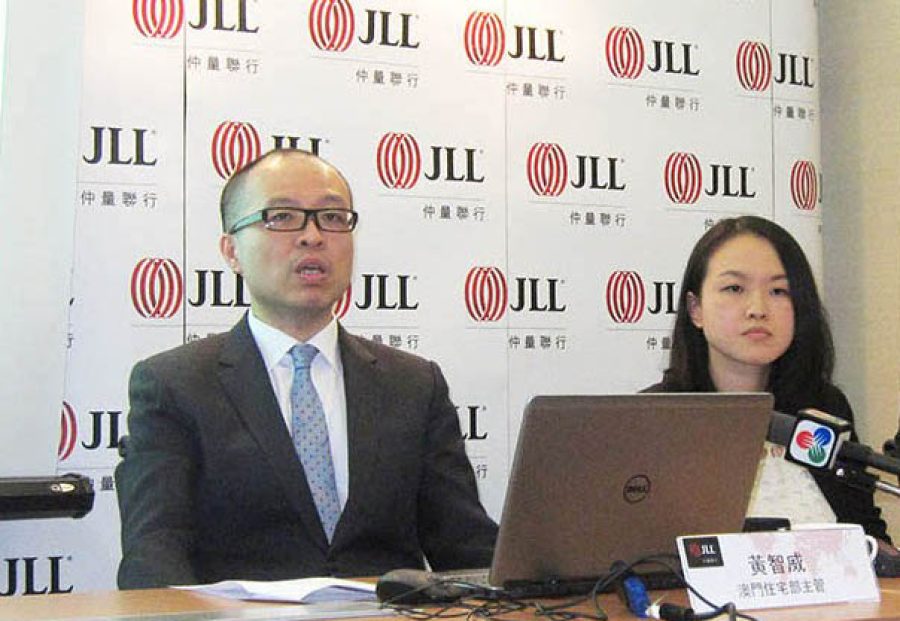With a stable economy, housing prices would have a stable rise of within 10 percent for the whole year, which is “very healthy” and the next step for the government is to help young couples get on the property ladder as a way to solve the under supply problem, as forecast by the local branch of US-based real estate consultancy firm Jones Lang LaSalle (JLL).
The Macau branch Wednesday held a press conference at its Finance and IT Centre office in Nam Van on its mid-year review of the local real estate landscape, with the agency saying that while the property market is “very healthy” and according to its Senior Manager for Valuation Advisory Services Mark Wong Ka Leong, housing prices would see a 10-percent growth for the whole year.
JLL Macau office’s residential property chief Jeff Wong Chi Wai said that from their own analysis, despite a “very healthy” real estate market where just about 4 percent of the transactions recorded in the first half of this year were “investors” buying their third or more property, there was still an undersupply for first-time buyers.
“The real estate market is very healthy, it’s now mainly driven by first-time home buyers and those who are trading in,” Jeff Wong said, adding this showed that the demand comes from local people.
According to Jeff Wong, there has been an average of 3,946 marriage registrations each year over the past five years, while there has been an average of just 2,576 residential units available each year.
“Not every new couple needs a new home, but it reflects that there is a need for housing,” Jeff Wong said, adding that the civic representatives have constantly been saying that young couples are unable to get on the property ladder.
“This all boils down to undersupply,” Jeff Wong said, suggesting that the government now should look into how to moderately increase supply.
Jeff Wong said that while increasing supply from new construction projects or land issues would take up to a decade, he suggested that the government should increase the supply of “second-hand” homes by facilitating a property ladder.
A “property ladder” is where an individual or family’s lifetime progress can be travelled equally from cheap houses for younger first-time buyers who are typically at the bottom of the property ladder, and expensive houses at the top. ‘Getting on to the property ladder’ is the process of buying one’s first house and holding a place on the volatile property market.
Jeff Wong said that Macau’s situation was that older generations buy properties as a vehicle for investment, as opposed to the stock market, and so many own two or more flats or older smaller flats.
“Small apartments are more affordable for young people. It could take seven years or even a decade to increase supply through land development, so in the short run, the government can facilitate a housing ladder, where people can trade off their older flat to younger people, so that they can buy newer flats from the market,” Jeff Wong said, “How to help people get on the property ladder I think is one of the directions the government can explore or think about in the next stage.”
According to JLL, there are currently 20,000 residential units pending approval for development by the government, while 9,000 units are currently under construction.






